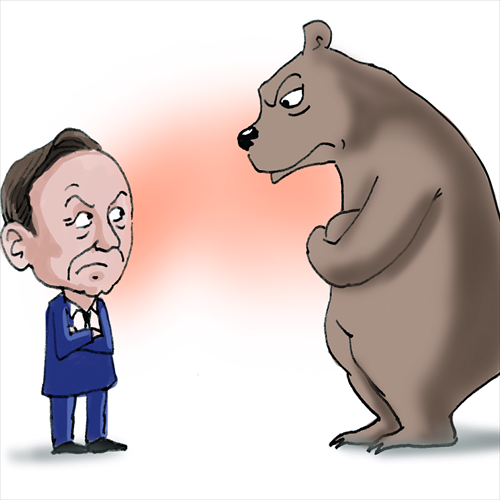Poland’s security aims face difficult path

Illustration: Liu Rui/GT
By Andrzej Duda, Poland's newly elected president, vowed to make "corrections" in the country's foreign policy with "sometimes deep ones," in an interview with the PAP agency just a day before his swore-in ceremony on August 6. He was apparently dissatisfied with the former ruling party Civic Platform, saying it has not done enough to enhance Poland's security and strengthen its international position.
It is hard to give a clear-cut prediction as to where Duda will steer Poland's foreign policy, but some clues can be drawn from his record.
Before Duda was elected as president in late May, experts believed that Duda would take a bolder stance on foreign policy and more aggressive cooperation with the West to stand up to Russia.
In his presidency, the former member of the conservative opposition Law and Justice Party is expected to go tougher on Russia and closer to the US and NATO by means of requesting an expanded NATO presence in Eastern Europe and troops permanently stationed in Poland. Duda may also hope NATO can cater to Poland's concerns during the military bloc's biennial summit next year in Warsaw.
Seeking permanent NATO bases in Poland is seen by some observers as one of the cornerstones of Duda's new security policy.
However, although Poland repeatedly raised the issue, fulfilling this wish is far from an easy task.
Although the US has not explicitly ruled out any chances of NATO bases in Poland, it needs to take into consideration Russia's possible reaction to prevent a deterioration of their already strained ties. Besides, opposition from within the EU, predominantly Germany and France, also carries much weight in blocking NATO bases as these EU countries fear intensifying tensions with Russia.
Under these circumstances, Poland may make some efforts to reduce Germany's opposition to the bases and express itself more strongly. But a final result will still depend on the full consideration of global strategies and geopolitical elements by big powers.
Voices are varied even within Poland regarding a larger NATO presence. Janusz Korwin-Mikke, a Polish member of the European Parliament, said in response to Duda's remarks that Poland is not in any danger that requires greater military presence of NATO, Russian state media outlet Sputnik International reported Monday.
Besides NATO and European countries like Germany and France, Poland itself is clearly aware that the chances of being threatened or invaded by Russia are rather slim. But like other Eastern European states, it has an exceptionally strong sense of insecurity and has requested more guarantee from NATO. In response, NATO may continue to take actions to placate these Eastern European countries including Poland and hereby send out a message of deterrence to Russia.
As a regional power, Poland has long expected to play a bigger role in finding a solution to the Ukraine crisis. As part of its intent for more active foreign policy, Duda also indicated that he would talk to EU partners about including Poland in Ukraine peace talks, which is needed if long-lasting peace is to be achieved.
However, others may not think the same way. The Kremlin is disinclined to see Poland's participation in the peace talks given Poland's unfriendly and hostile attitude toward Russia and a possibly tougher stance by Duda. Even if Germany and France would consider Poland's proposal, Russia's stand cannot be ignored.
To this end, the Polish government may have to take a positive and constructive posture in its relations with Russia to gain some faith from the Kremlin, which however seems to be an unlikely task for Duda. Poland's expectation to be included in the Ukraine peace talks will be unlikely to come true.
As the new president of Poland, Duda is set to keep away from the country's passive stance and adopt more active foreign policy. But it will be easier to devise such a strategy than to realize it in the end.
The author is director of the Institute of European Studies at the China Institutes of Contemporary International Relations. opinion@globaltimes.com.cn